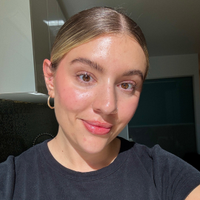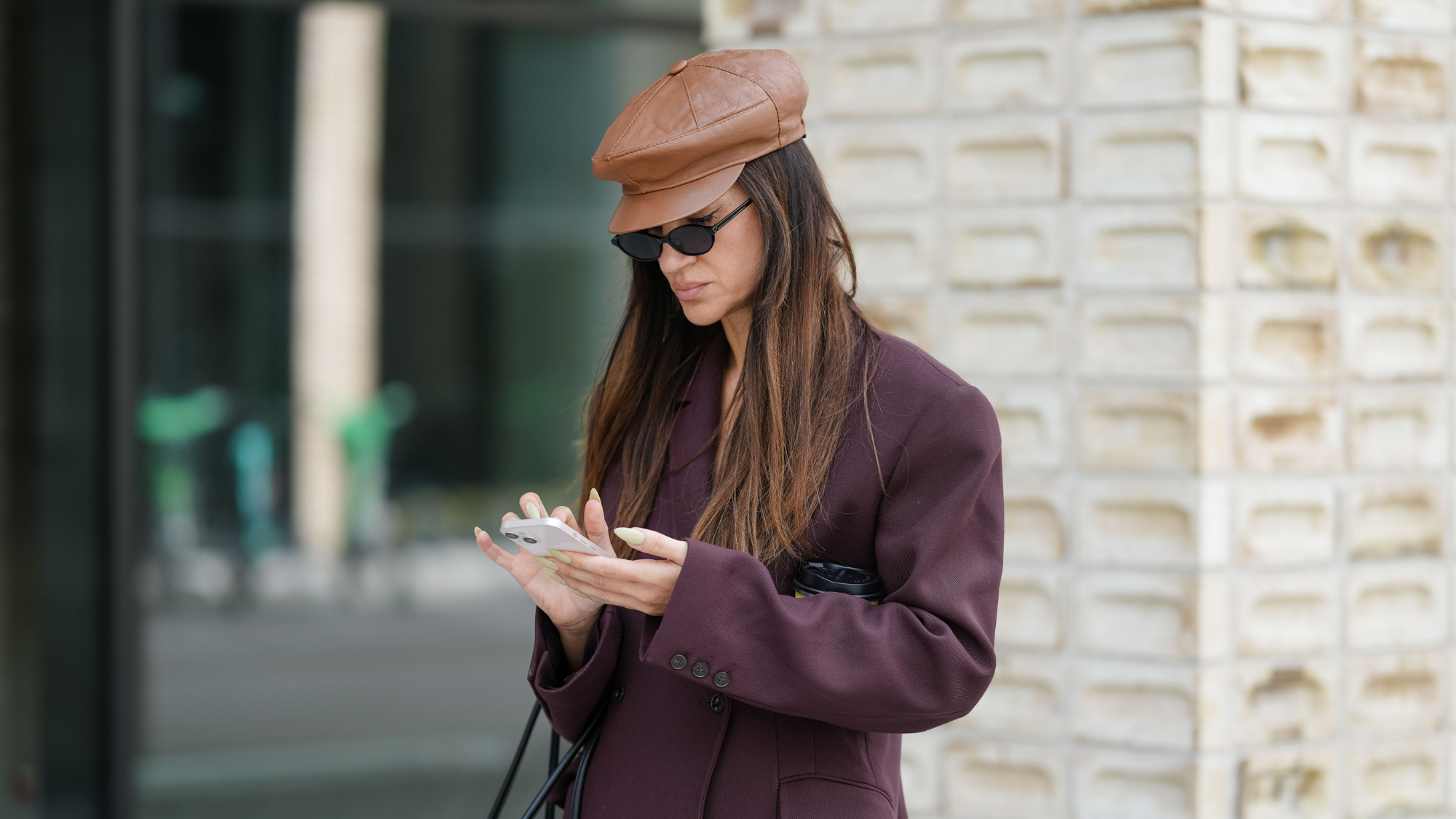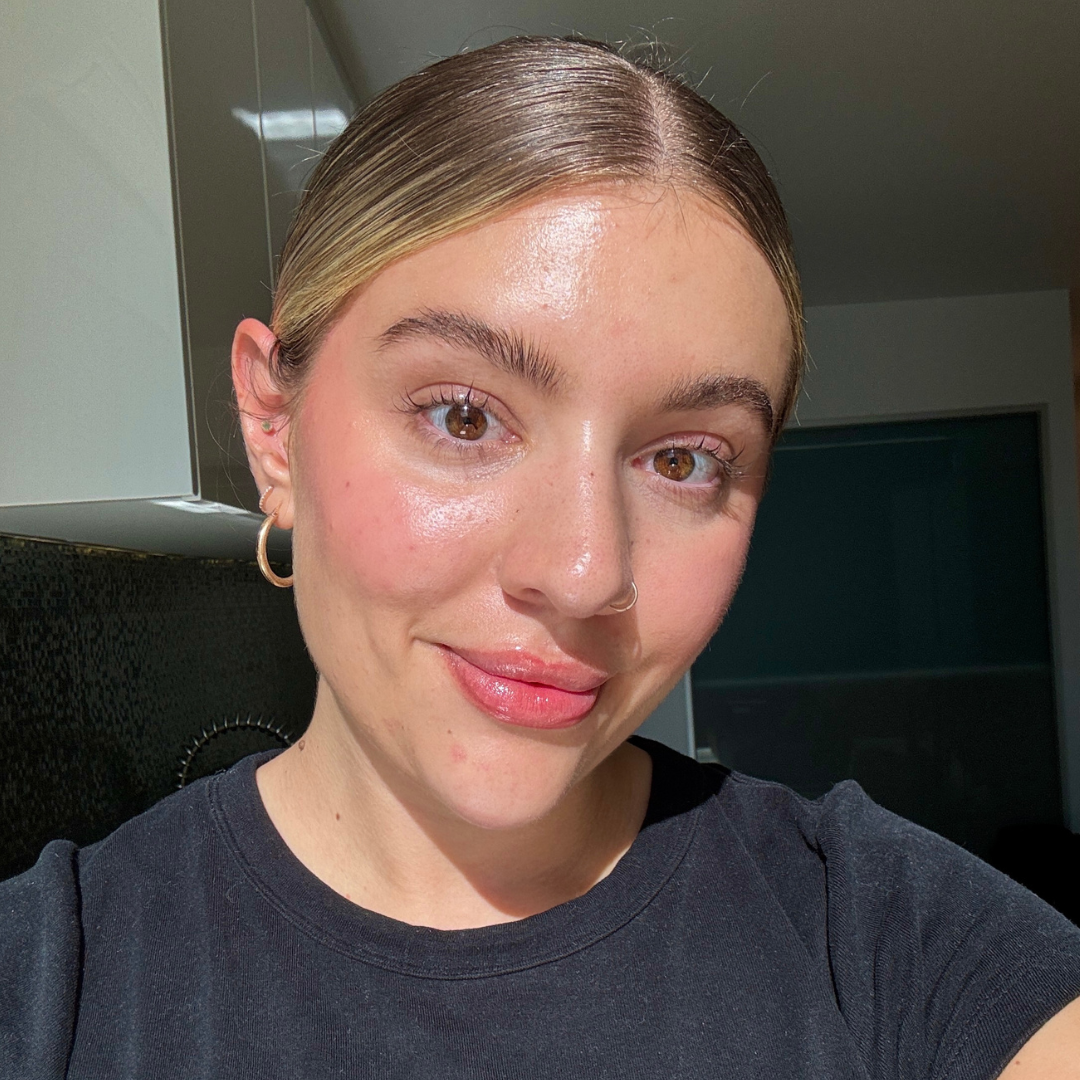Beauty Product Packaging Can Be Incredibly Confusing—These Clever Skincare Apps Help You Decode The Jargon
Make sense of every product in your routine


Celebrity news, beauty, fashion advice, and fascinating features, delivered straight to your inbox!
You are now subscribed
Your newsletter sign-up was successful
Ever since I started suffering from adult acne, I've developed much more of an interest in what's actually in my products. Whether it's discovering whether an SPF or moisturiser is non-comedogenic (doesn't clog pores) or if there are any potentially irritating essential oils in my serum, I'm much more interested in getting to the bottom of each formulation's breakdown. To help me do this, I've found skincare ingredient checker apps to be incredibly helpful. And it's not just me who loves them: the experts are on board, too.
"Apps are making skin literacy more accessible. They help users understand what’s actually in their products—not just the buzzwords on the front label," says Dr Kemi Fabusiwa, NHS Doctor & Skin Expert. "That’s empowering, especially in a market that’s saturated with trend-led launches. It encourages more intentional shopping, better routine building, and fewer skin reactions caused by ingredient overload."
"For people with known sensitivities or specific skin concerns, these tools can aid in narrowing down suitable products. Apps can also promote ingredient transparency and help demystify skincare for beginners who feel overwhelmed," adds Dr Sidra Khan, Consultant Dermatologist.
It is, of course, important to remember that although these resources can be helpful, they are not the be-all and end-all of healthy skin or the routines that you build. "Ingredients are not inherently 'good' or 'bad' and their impact depends on formulation, concentration, and how they interact with your skin," explains Dr Khan. "Over-simplified red/green ratings can unintentionally create fear around safe, effective ingredients when used correctly."
With this in mind, be sure to use these apps to your advantage, but in a measured and safe way (as well as with context), the doctor advises: "Treat them as educational tools, not final authorities. Cross-reference with reliable skin health sources, look at what the qualified experts say, pay attention to how your skin responds, and avoid ingredient hyper-fixation. When in doubt, be sure to consult your healthcare provider."
Here are some of the best options to track your skincare ingredients and products.
Best skincare apps
1. INCI Decoder
A post shared by INCIDecoder (@incidecodercom)
A photo posted by on
INCI Decoder allows you to search for specific products or demystify ingredients, simply by typing them in on the app/website. Both Dr Khan and Dr Fabusiwa recommend this as one of their favourites. "[It is] straightforward and reliable for breaking down what each ingredient actually does. No fluff, just function," explains Fabusiwa. Khan, who describes it as her 'go-to,' adds: "It is a practical, user-friendly resource that explains ingredient functions without, most importantly, sensationalising risks."
Celebrity news, beauty, fashion advice, and fascinating features, delivered straight to your inbox!
Browse INCI Decoder here.
2. SkinSort
A post shared by SkinSort (@skinsort)
A photo posted by on
One of my personal go-tos for building routines and examining specific products, SkinSort allows you to filter product searches according to labels like 'fungal acne-safe,' 'oil-free,' 'silicone-free,' and 'fragrance-free.' For this reason, it's super helpful when trying to build a safe and comprehensive routine for breakouts and other specific skin conditions. Each product analysis also offers a breakdown of every ingredient featured, with insight into what each does and how it works, along with potential dangers or side effects. Users can also review products, giving it a community feel.
Browse SkinSort here.
3. Think Dirty
A post shared by Think Dirty (@thinkdirty)
A photo posted by on
This is an app that's really centred around making your routine 'cleaner' in terms of the ingredients you put on your face (as well as the rest of your body). You can scan a product with the barcode function, as well as search by keyword and ingredient. Think Dirty is one worth paying for a subscription for; without it, you have fairly limited access. Behind the paywall is plenty of educational resources, as well as a full catalogue of products to explore.
Browse Think Dirty here.
4. OnSkin
A post shared by OnSkin—AI Product Scanner (@onskin.app)
A photo posted by on
One of the first ingredient checker apps I used, OnSkin is not only smart, it also looks very cute. The user-friendly design allows easy browsing, whether you're scanning a product, building a routine, or using the product's AI 'Skin Helper'. I found this one of the best to search individual products on: it offers a safety score out of 100 based on four key metrics: allergy risk, high concentration alert, carcinogenicity, and endocrine disruption risk.
Browse OnSkin here.
5. Yuka
A post shared by Yuka | Scan de produits (@yuka_app)
A photo posted by on
Perhaps the best-known app for analysing ingredients lists on everything from skincare to household cleaning products and food, Yuka follows an easy-to-understand rating system, which ranks a product as excellent, good, mediocre or poor, based on safety and health benefits/dangers. It's super informative and comprehensive, but just remember it doesn't specialise in skincare alone, meaning it might not address every concern or detail you may want to know about a product.
Browse Yuka here.
6. SkinSAFE
A post shared by SkinSAFE (@skinsafeproducts)
A photo posted by on
SkinSAFE is particularly handy if you have known allergens: spanning across beauty, household, healthcare, pets and baby categories, you can easily search while filtering ingredients associated with your allergy. As well as skincare, you can search for make-up products, which is an added plus when you're suffering from acne or other specific conditions and want your entire routine (from start to finish) to complement your skin.
Browse SkinSAFE here.

Rebecca is a freelance beauty journalist and contributor to Marie Claire. She has written for titles including Refinery29, The Independent, Grazia, Coveteur, Dazed, Stylist, and Glamour. She is also a brand consultant and has worked with the likes of The Inkey List on campaign messaging and branded copy. She’s obsessed with skincare, nail art and fragrance, and outside of beauty, Rebecca likes to travel, watch true crime docs, pet sausage dogs and drink coffee. Rebecca is also passionate about American politics and mental health awareness.